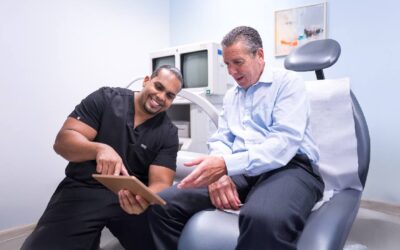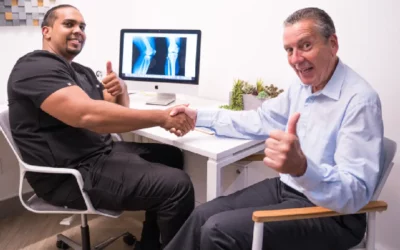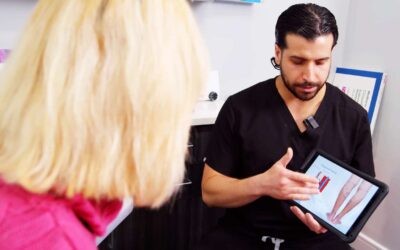What Causes Cramps In Legs?
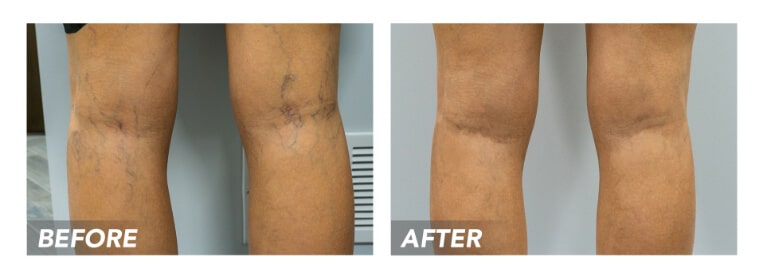
If you’ve ever experienced a sudden, painful muscle contraction in your leg, you’re not alone. Leg cramps are a common problem that affects people of all ages, often at night or during exercise. At New Jersey Vein Treatment, we understand that leg cramps can be a troubling symptom for many patients, which is why we’ve put together this comprehensive guide to help you understand what causes leg cramps and how to prevent them.
What are Leg Cramps?
Leg cramps, also known as muscle cramps or spasms, are sudden, painful contractions of the muscles in the leg. These contractions can last from a few seconds to several minutes and can occur in any part of the leg, but most commonly affect the calf muscles. Leg cramps can happen at any time, but are often more common at night, which can disrupt your sleep and make it difficult to function during the day.
What Causes Leg Cramps?
Leg cramps can occur due to a variety of reasons, including overuse of muscles, dehydration, mineral imbalances, nerve compression, medication side effects, chronic venous insufficiency, and varicose veins. The following is an explanation of the causes of leg cramps:
- Overuse of Muscles: Overuse of leg muscles is one of the most common causes of leg cramps. When muscles are overworked or fatigued, they may spasm or cramp, causing pain and discomfort. This type of leg cramp is often experienced by athletes or individuals who engage in physical activities that require prolonged standing or walking.
- Dehydration: Dehydration can also contribute to leg cramps. When the body loses too much fluid, it can lead to an electrolyte imbalance, which can cause muscle cramps. Electrolytes such as potassium, magnesium, and calcium are important for proper muscle function. When these minerals become imbalanced, it can lead to cramping in the legs.
- Mineral Imbalances: Imbalances in minerals such as potassium, magnesium, and calcium can also contribute to leg cramps. These minerals are essential for muscle function, and when they are imbalanced, it can lead to muscle cramps. Potassium is particularly important for muscle function, and a deficiency in this mineral can lead to muscle weakness and cramping.
- Nerve Compression: Nerve compression or irritation in the spine or legs can cause leg cramps. This type of leg cramp is often experienced by individuals with spinal stenosis or herniated discs. Nerve compression can lead to muscle spasms or cramps in the legs.
- Medication Side Effects: Certain medications can also cause leg cramps as a side effect. Medications such as diuretics, statins, and beta blockers can disrupt electrolyte balance, leading to muscle cramps. In some cases, medication-induced leg cramps can be alleviated by switching to a different medication or adjusting the dosage.
- Chronic Venous Insufficiency: Chronic venous insufficiency is a condition in which the veins in the legs are unable to return blood to the heart, leading to leg cramps and other symptoms. This condition can cause blood to pool in the legs, which can lead to swelling and cramping.
- Varicose Veins: Varicose veins are enlarged and twisted veins that can cause leg pain, swelling, and cramping. These veins are often the result of venous insufficiency and can cause blood to pool in the legs, leading to discomfort and cramping.
Identifying Leg Cramps Caused by Vein Disease
Chronic venous insufficiency (CVI) is a condition in which the veins in the legs are unable to pump blood back to the heart effectively. This can lead to a backup of blood in the veins, causing discomfort, pain, and other symptoms. In addition to leg cramps, other symptoms of CVI may include leg swelling, skin discoloration, itching or burning, and the formation of ulcers or sores on the skin. In some cases, CVI may also cause restless leg syndrome, which is characterized by an uncontrollable urge to move the legs, especially at night.
If you experience these symptoms, please seek medical attention from a vein specialist, who can perform a thorough evaluation and determine the underlying cause of your symptoms. At New Jersey Vein Treatment, we offer state-of-the-art diagnostic testing and minimally invasive vein treatments that can effectively treat CVI and improve your overall quality of life.
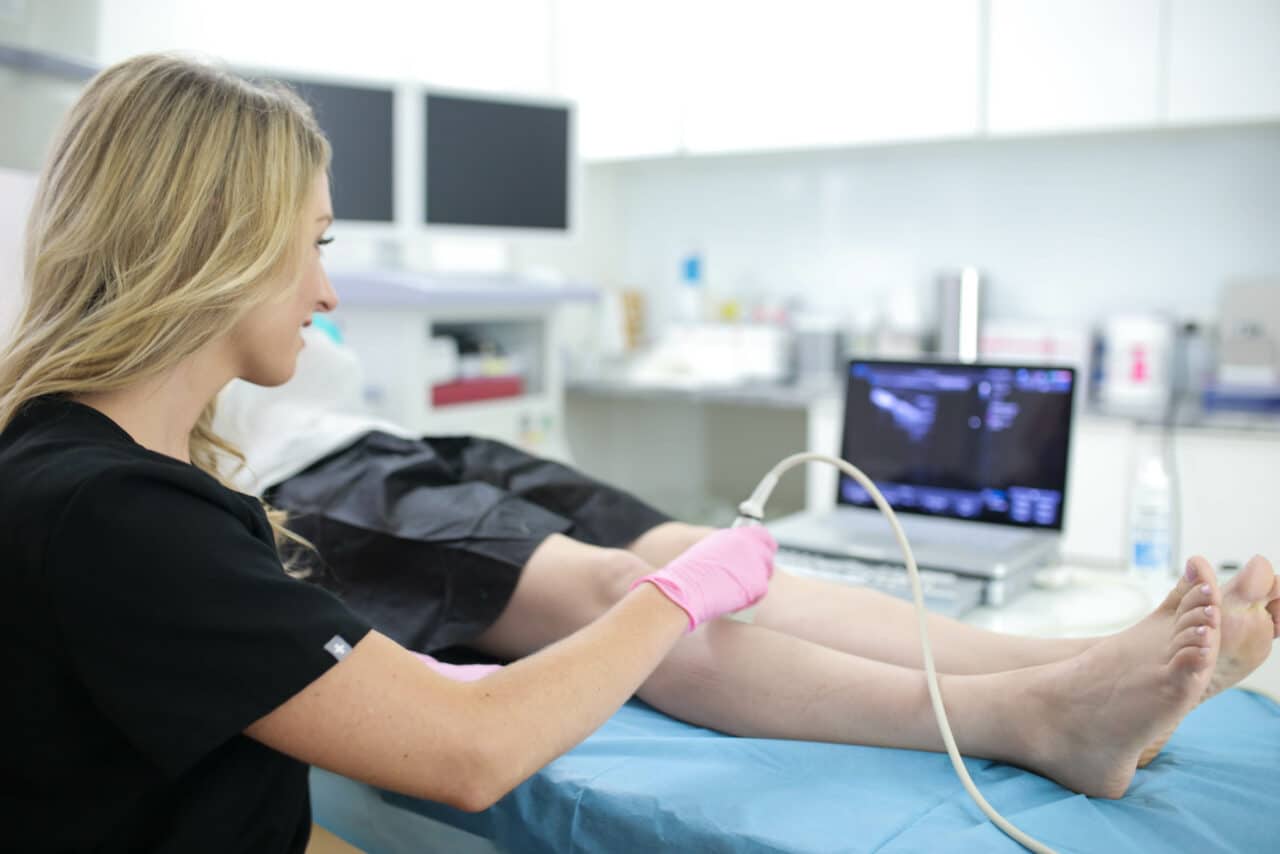
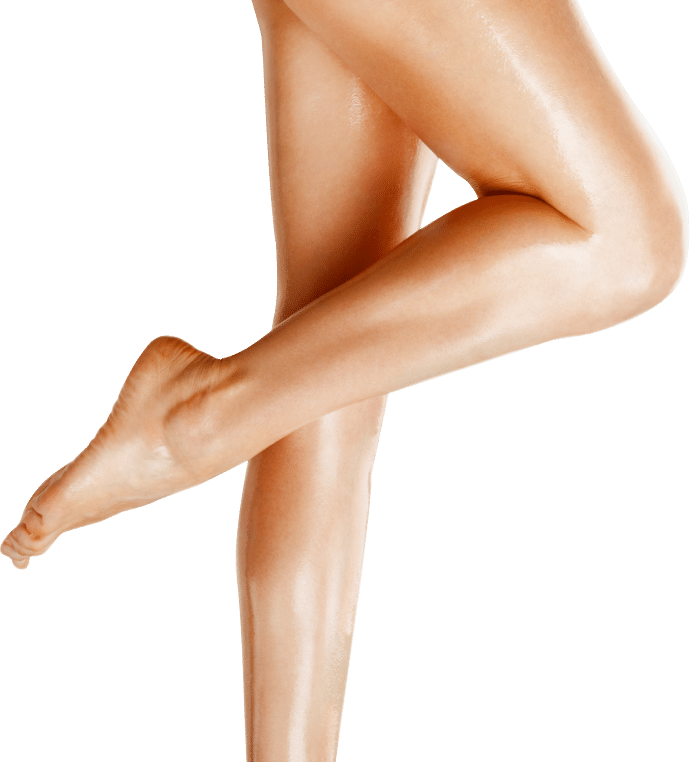
BOOK AN APPOINTMENT
Do you have any symptoms? Consult now with one of the Best Vein Specialist in New Jersey
How to Prevent Leg Cramps?
There are several ways to prevent leg cramps, including:
- Stay Hydrated: Drinking plenty of water and fluids can help prevent dehydration and electrolyte imbalances, which can lead to leg cramps.
- Stretching: Stretching the muscles in your legs regularly can prevent cramps by keeping them flexible and improving blood flow.
- Massage: Massaging the muscles in your legs can help relax them and prevent cramping.
- Improve Blood Flow: Improving blood flow to the legs can help prevent cramps caused by venous insufficiency or varicose veins.
- Minimally Invasive Vein Treatments: Minimally invasive vein treatments, such as sclerotherapy, endovenous laser ablation, radiofrequency ablation, VenaSeal, and ambulatory phlebectomy, can effectively treat chronic venous insufficiency and varicose veins, reducing the risk of leg cramps.
When to See a Doctor?
In most cases, leg cramps are not a serious condition and can be managed with home remedies. However, if you experience frequent leg cramps that interfere with your daily activities, or if you have other symptoms such as swelling, redness, or warmth in the affected leg, it’s important to see a doctor. In some cases, leg cramps can be caused by chronic venous insufficiency or other underlying factors, so a diagnosis is essential.
Visit New Jersey Vein Treatment
Leg cramps can be a painful and frustrating symptom that can interfere with your quality of life. However, by understanding what causes leg cramps and how to prevent them, you can manage this condition and improve your overall health and well-being. At New Jersey Vein Treatment, we offer a range of minimally invasive vein treatments that can effectively treat chronic venous insufficiency and varicose veins, reducing the risk of leg cramps and other symptoms. Our board-certified vein doctors use state-of-the-art technology and techniques to diagnose and treat vein problems, ensuring that you receive the best possible care.
New Jersey Vein Treatment has five convenient locations across New Jersey, including Clifton, Paramus, Woodland Park, Woodbridge Township, and Scotch Plains. If you’re in the Bergen County, you can visit our Clifton office at 1117 US-46 Suite 205, near the garden state parkway. Our medical centers are easily accessible from major highways and offer ample parking for your convenience. Contact us today to schedule a consultation at the location nearest you.
NJ Vein Doctors
Meet our team of New Jersey Vein Treatment Specialists
Vein Treatments are covered by most major medical insurances, including Medicare. Call us today to verify your insurance for FREE >
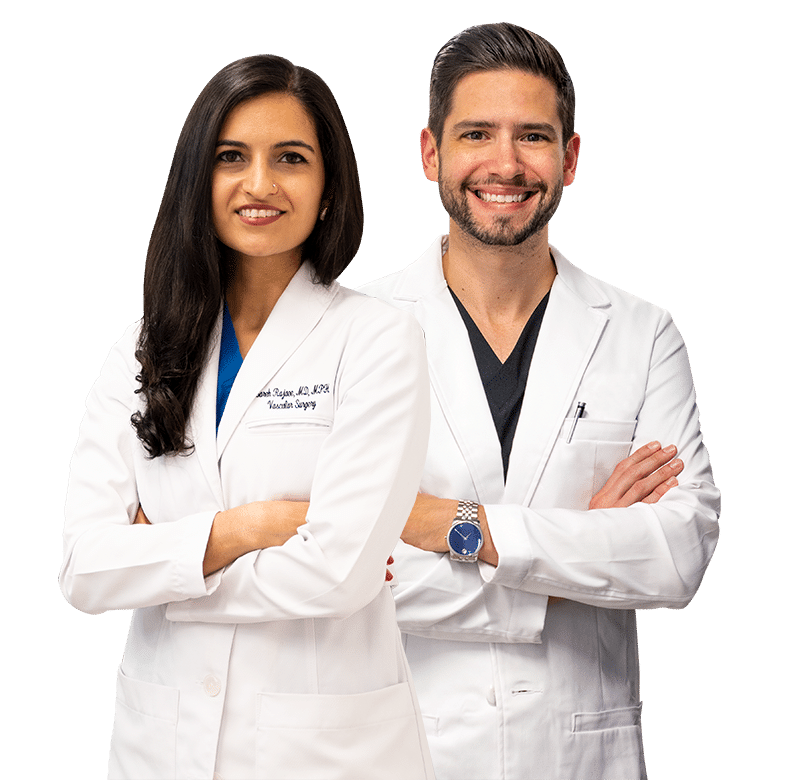
Meet our Team of Top Vein Specialists in New Jersey
Contact us
CALL US
Speak instantly with one of our team members; they will answer any questions you may have regarding insurance coverage, booking an appointment and our vein treatment locations. (973) 946-8082
BOOK APPOINTMENT
Visit our Book Appointment page and instantly request an appointment at the New Jersey vein center. We offer Free Insurance Verification before your appointment.
